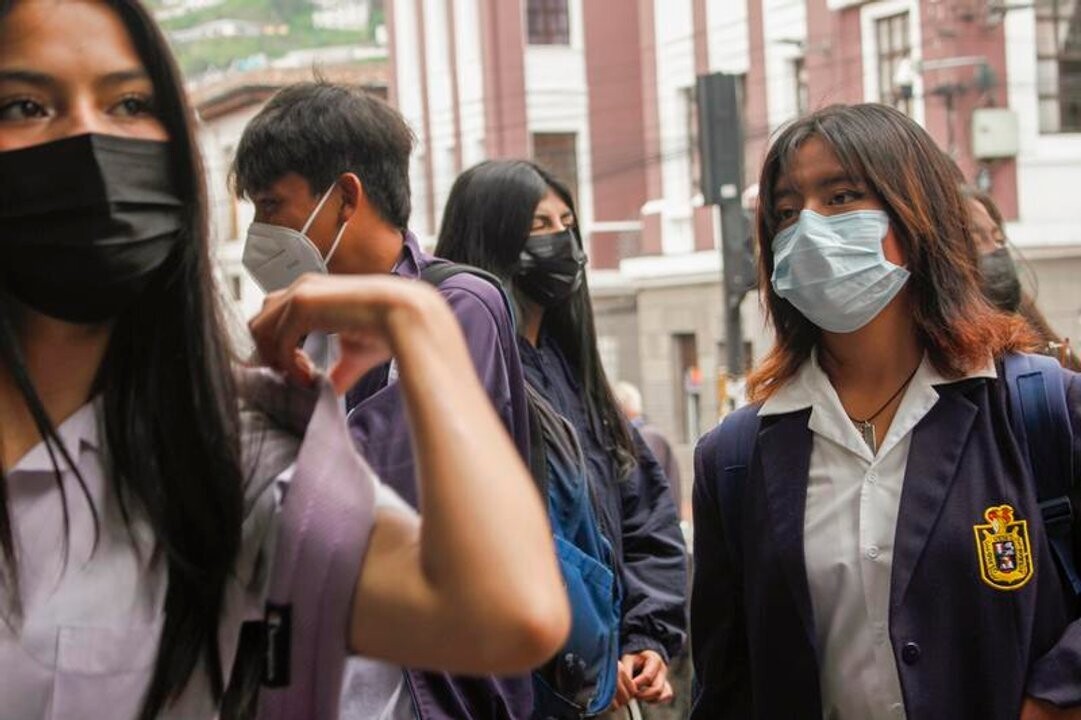
The Ministry of Health of Ecuador has implemented the preventive use of masks in institutions in four provinces due to the increase in respiratory diseases during the winter season. The Health Minister indicated that this measure will be gradually lifted as vaccination progresses. The vaccination campaign has been intensified after detecting 321 cases of whooping cough, which have resulted in 11 deaths.
In a national broadcast, Health Minister Edgar Lama dismissed the presence of a national epidemic of whooping cough in the country. It has been reported that this outbreak of the disease in Ecuador has a regional cause and is related to similar situations in neighboring countries such as Colombia and Peru. Nevertheless, the cases in Ecuador have generated a health contingency that has led the Ministries of Public Health and Education to implement preventive measures to ensure a safe return to classes.
On the other hand, Bolivia has recorded a sustained increase in acute respiratory infections and has reported 25 deaths related to severe influenza cases so far in 2025. The Minister of Health and Sports of Bolivia mentioned that the deceased had pre-existing conditions that aggravated their state upon contracting the illness.
In Ecuador, the educational community has made the use of masks mandatory again to prevent the transmission of respiratory diseases, especially whooping cough, which has had outbreaks in several provinces of the country. This measure will be implemented for 60 days in provinces such as Manabí, Guayas, Pichincha, and Santo Domingo de los Tsáchilas.
It is essential to control underlying diseases to reduce the risk of severe complications from influenza, as emphasized by the Minister of Education of Ecuador. In Bolivia, despite the increase in cases of acute respiratory infections, the country remains within the endemic channel, which means that the levels of contagion are within historical patterns for this time of year.
The Ministry of Health of Bolivia has begun distributing doses of the pediatric influenza vaccine nationwide, prioritizing more vulnerable groups such as children under 12 years old, the elderly, pregnant women, patients with chronic diseases, and medical personnel. The importance of reinforcing biosecurity measures, especially in school environments, has been emphasized to prevent the spread of respiratory diseases.













